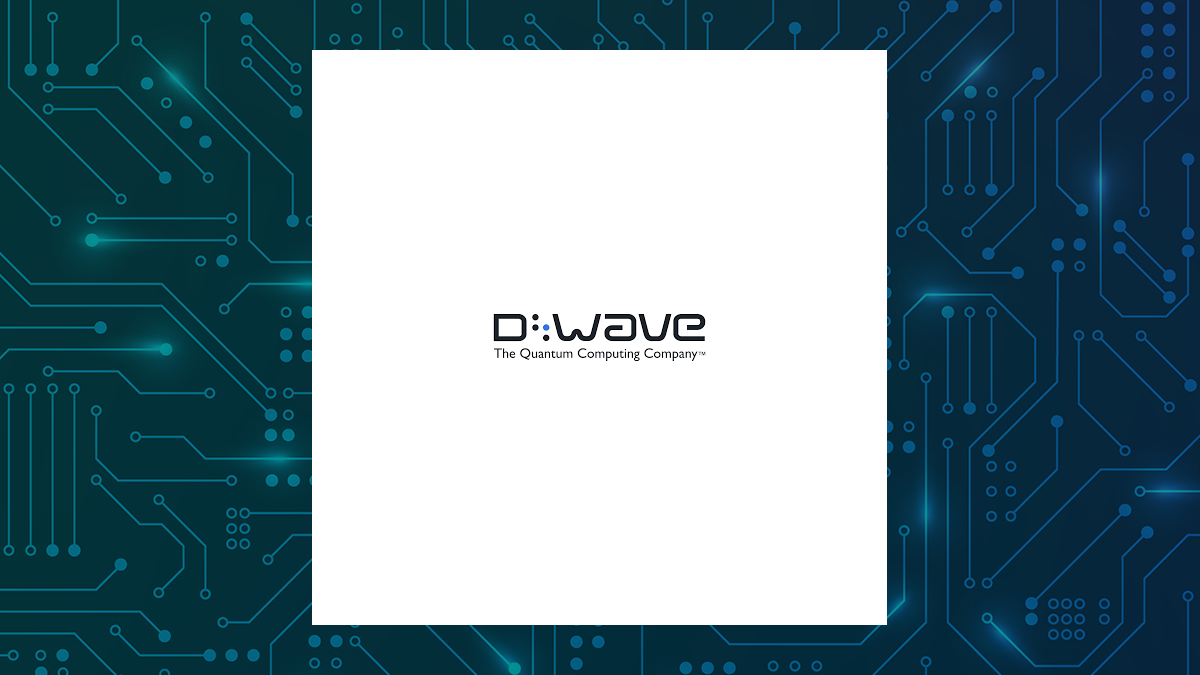Understanding D-Wave Quantum's (QBTS) Monday Stock Price Decrease

Table of Contents
Market-Wide Factors Influencing QBTS Stock Performance
Several macroeconomic and industry-wide trends likely contributed to Monday's QBTS stock price decline. Analyzing these broader market forces helps put the D-Wave Quantum situation in perspective.
Overall Market Sentiment
Monday's market performance was influenced by several negative economic indicators. Investor sentiment was generally cautious, impacting technology stocks across the board.
- Inflation Concerns: Persistent inflation and the expectation of further interest rate hikes by central banks created uncertainty in the market, leading to risk aversion among investors. News releases highlighting stubbornly high inflation figures contributed to this negative sentiment. [Link to relevant news article about inflation].
- Geopolitical Uncertainty: Ongoing geopolitical tensions also played a role in dampening market optimism. [Link to news article about relevant geopolitical events]. This global uncertainty often translates to decreased investment in riskier assets, such as technology stocks.
Technology Sector Trends
The technology sector, as a whole, experienced a downturn on Monday. This wasn't unique to D-Wave Quantum. The broader sell-off affected many technology companies, particularly those involved in artificial intelligence (AI) and quantum computing.
- Similar Stock Performance: Other publicly traded quantum computing companies also saw declines in their stock prices on Monday, suggesting a sector-wide correction rather than an issue solely impacting D-Wave. [Mention specific examples of similar companies and their percentage changes].
- AI Market Correction: The AI sector, closely linked to quantum computing advancements, also saw a pullback. Investor concerns about the sustainability of the current AI boom could have contributed to this broader sell-off, negatively impacting companies like D-Wave Quantum.
Company-Specific Factors Affecting D-Wave Quantum (QBTS)
Beyond the overall market conditions, several factors specific to D-Wave Quantum could have contributed to the Monday stock price drop.
Lack of Recent Positive News or Announcements
The absence of positive news or significant announcements from D-Wave Quantum itself may have created an opportunity for profit-taking by investors. A lack of substantial updates can lead to investor uncertainty, causing them to sell their shares.
- Absence of Major Contracts: If D-Wave Quantum hadn't announced any major new contracts or partnerships, it could signal slower-than-expected growth, prompting some investors to divest.
- Delayed Product Launches: Any potential delays in product launches or technological advancements could also negatively impact investor confidence and trigger selling pressure.
Investor Sentiment and Analyst Ratings
Changes in analyst ratings and overall investor sentiment significantly influence a stock's performance. A shift in sentiment towards D-Wave Quantum could have played a key role in Monday’s drop.
- Downgraded Ratings: If any major investment banks or financial analysts downgraded their ratings for D-Wave Quantum, this would have likely impacted investor confidence and triggered selling. [Mention any specific analyst reports if available].
- Reduced Buy Ratings: A decrease in the number of "buy" recommendations from analysts could have signaled a shift in market sentiment towards a more cautious outlook.
Competition in the Quantum Computing Market
The quantum computing market is highly competitive, with significant players like IBM, Google, and others constantly innovating. Advancements by competitors might have impacted investor sentiment towards D-Wave Quantum.
- Competitor Advancements: Announcements of significant breakthroughs or advancements by competing companies might have shifted investor attention and capital away from D-Wave Quantum. [Mention specific examples of competitor activities].
- Increased Market Saturation: A perception of increased market saturation with competing quantum computing solutions could also impact D-Wave's perceived market share and future prospects.
Conclusion
The Monday stock price decrease for D-Wave Quantum (QBTS) was likely a confluence of market-wide factors and company-specific events. Broader economic uncertainty, a technology sector downturn, and a potential lack of positive company news all contributed to the decline. In addition, competition within the burgeoning quantum computing market plays a significant role in shaping investor sentiment.
The implications of this price drop remain to be seen. In the short term, investors may experience losses, but the long-term outlook will depend on D-Wave Quantum's ability to navigate the competitive landscape and deliver on its technological promises.
Call to Action: Before making any investment decisions regarding D-Wave Quantum (QBTS) stock, conduct thorough research and carefully consider the inherent risks associated with investing in the relatively nascent quantum computing industry. Stay informed about future developments in D-Wave Quantum (QBTS) stock and the broader quantum computing market to make well-informed investment decisions. Explore additional resources and analysis to gain a comprehensive understanding of the company and its place within this dynamic sector.

Featured Posts
-
 Ramon Rodriguez Will Trent On Surviving Three Scorpion Stings
May 20, 2025
Ramon Rodriguez Will Trent On Surviving Three Scorpion Stings
May 20, 2025 -
 Kaellman Ja Hoskonen Puola Ura Paeaettynyt
May 20, 2025
Kaellman Ja Hoskonen Puola Ura Paeaettynyt
May 20, 2025 -
 Resilience And Mental Wellness Turning Adversity Into Growth
May 20, 2025
Resilience And Mental Wellness Turning Adversity Into Growth
May 20, 2025 -
 Synaylia Kathigiton Dimotikoy Odeioy Rodoy Stin Dimokratiki Programma And Eisitiria
May 20, 2025
Synaylia Kathigiton Dimotikoy Odeioy Rodoy Stin Dimokratiki Programma And Eisitiria
May 20, 2025 -
 Kaellman Ja Hoskonen Loppu Puolan Seuralle
May 20, 2025
Kaellman Ja Hoskonen Loppu Puolan Seuralle
May 20, 2025
